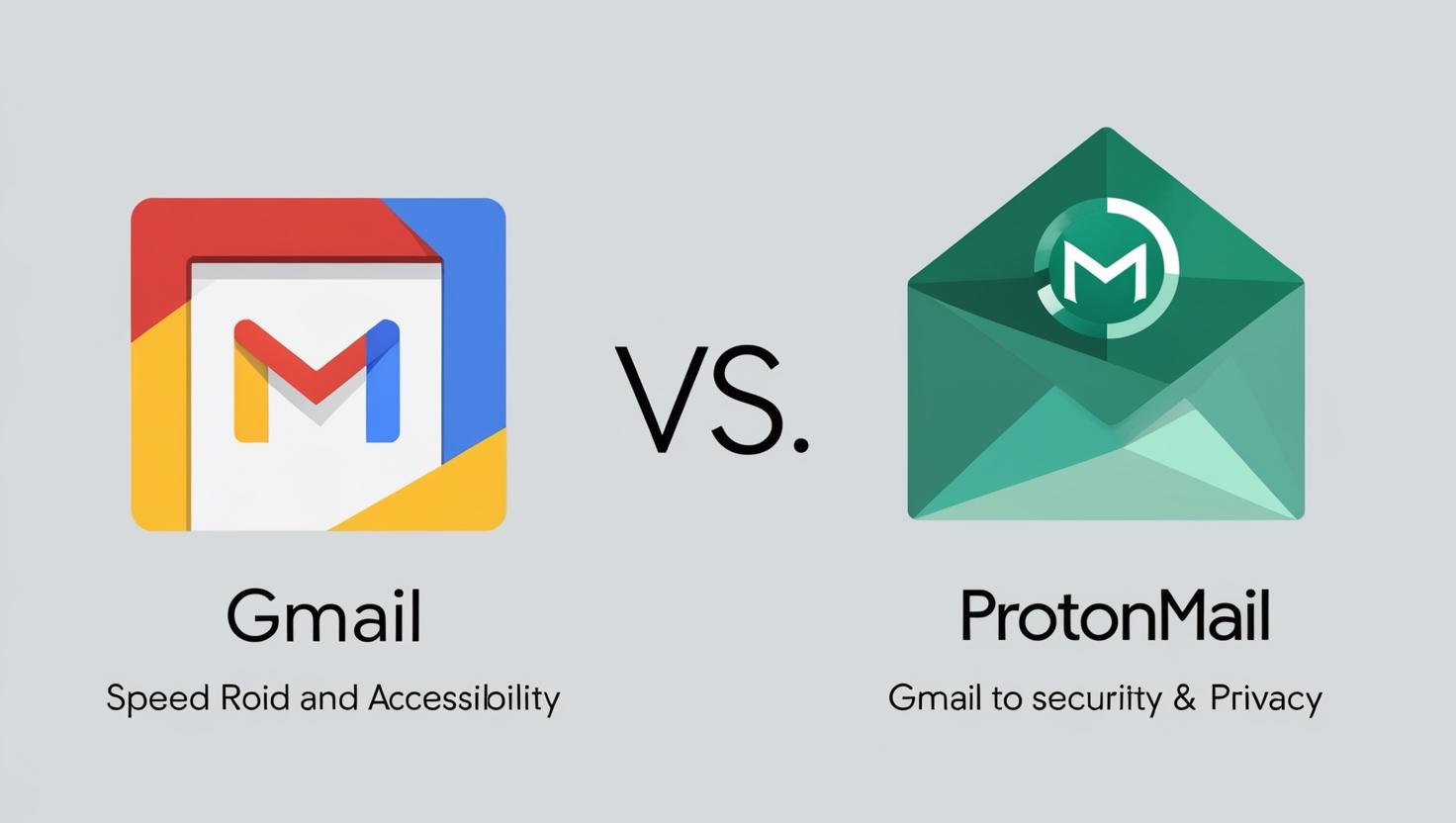Choosing an email service can sometimes feel overwhelming given the multitude of options available. Two popular choices are Gmail and ProtonMail. Each has its own strengths and weaknesses, catering to different user needs. Let’s delve into a comparison of these two services to help you make an informed decision.
Gmail
Advantages
- Integration with Google Services: Gmail offers seamless integration with other Google services like Google Drive, Calendar, and Docs, making it an excellent choice for users already embedded in the Google ecosystem.
- Large Storage Capacity: Gmail provides substantial storage space, starting at 15 GB, shared across Google services. This is particularly useful for users who receive large volumes of emails or need to store a lot of attachments.
- Powerful Search and Filters: Google’s search capabilities extend to Gmail, allowing users to easily find emails. Additionally, Gmail’s filtering options help organize emails efficiently, making it easier to manage large inboxes.
- Customizability and Add-ons: Gmail supports a wide range of add-ons and extensions, allowing users to customize their email experience to suit their specific needs.
Disadvantages
- Privacy Concerns: Gmail scans emails for advertising purposes, which raises privacy concerns for users who prioritize confidentiality.
- Advertisements: Users may find the presence of ads in their inboxes intrusive, although they can opt for Google Workspace to remove them.
ProtonMail
Advantages
- End-to-End Encryption: ProtonMail is designed with privacy as its core focus, offering end-to-end encryption to ensure that emails can only be read by the sender and the recipient.
- Privacy-First Approach: As a Swiss-based company, ProtonMail benefits from robust Swiss privacy laws. It doesn’t log IP addresses or engage in user tracking, which is appealing to privacy-conscious users.
- Open Source: ProtonMail’s code is open source, allowing third parties to verify its security claims, which adds another layer of trust for users concerned about encryption.
- No Advertisements: ProtonMail does not display ads, providing a clean and distraction-free email experience.
Disadvantages
- Limited Features in Free Version: The free version of ProtonMail offers limited storage (500 MB) and fewer features compared to Gmail’s free offering.
- Integration Limitations: Unlike Gmail, ProtonMail does not integrate as seamlessly with other third-party services, which might be a drawback for users who rely on multiple online tools.
Security and Privacy
Gmail:
- Gmail is a product of Google, which offers robust security features such as two-factor authentication and suspicious activity alerts.
- However, Gmail is not end-to-end encrypted by default, meaning Google can potentially access the contents of your emails.
- Google has a history of using data from Gmail accounts to tailor advertisements, which raises privacy concerns for some users.
ProtonMail:
- ProtonMail is renowned for its strong focus on privacy and security. It offers end-to-end encryption, ensuring that only the sender and receiver can read the emails.
- ProtonMail does not collect any personal data from its users and is not ad-supported.
- Based in Switzerland, ProtonMail benefits from strong privacy laws, adding an extra layer of protection.
Features and Usability
Gmail:
- Gmail boasts a user-friendly interface and integrates seamlessly with other Google services like Google Drive, Calendar, and Meet.
- It offers a powerful search function, a variety of organizational tools, and a generous amount of free storage (15 GB shared with other Google services).
- Gmail supports a wide range of third-party applications and extensions, enhancing its functionality.
ProtonMail:
- ProtonMail offers a clean and straightforward interface but may lack some of the advanced features found in Gmail.
- It provides a limited amount of free storage (500 MB) with paid options available for more space.
- ProtonMail emphasizes secure communication, including features like self-destructing messages and encrypted attachments.
Accessibility and Availability
Gmail:
- Available on all major platforms, including web, Android, and iOS, Gmail offers a consistent experience across devices.
- With its large user base, Gmail provides extensive support and community resources.
ProtonMail:
- ProtonMail is also available on web, Android, and iOS, but its user base is smaller in comparison to Gmail.
- While ProtonMail’s focus is on security, it may not offer the same level of integration with other apps and services as Gmail.
Cost
Gmail:
- Gmail is free to use with the option to purchase additional storage through Google One plans.
- The free version is supported by ads, which are tailored based on user data.
ProtonMail:
- ProtonMail offers a free tier with limited features and storage. Paid plans are available that provide more storage and additional features such as custom domain support.
- ProtonMail does not display ads, relying on user subscriptions for revenue.
Conclusion
Choosing between Gmail and ProtonMail largely depends on your priorities. If you value integration and storage capacity, Gmail is a solid choice. However, if privacy and security are your primary concerns, ProtonMail might be the better option. Both services have their unique strengths, and understanding these can guide you toward the best fit for your email needs.
In conclusion, the choice between Gmail and ProtonMail largely depends on your priorities. If you value a wide range of features, seamless integration with other services, and a generous amount of storage, Gmail may be the right choice for you. On the other hand, if privacy and security are your main concerns, and you are willing to trade off some features for enhanced protection, ProtonMail could be the better option. Consider what matters most to you in an email service and choose accordingly.


